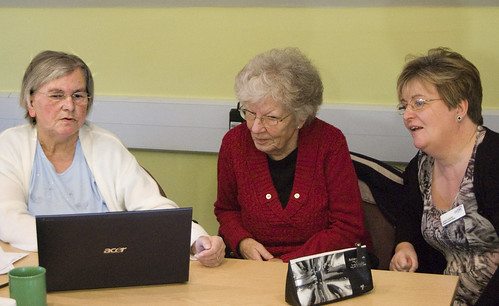Photo by Mero Report: Social Media Surgery at COCAP, Nepal
Social media surgeries in the UK received lots of attention last Thursday when the Prime Minister recognised the social media surgery movement with a Big Society Award for 2012.
Nick posted about the award and mentioned the wonderful people who have organised surgeries over the last three years in the UK. They’re enthusiastic, generous people who make stuff happen.
While the Big Society Awards acknowledge individuals and organisations across the UK that demonstrate the Big Society in their work or activities, I thought I should mention the surgeries outside the UK. It’s great to see an idea that originated in Birmingham spread to other shores – and I’m keen to hear how the surgeries are working in other countries.
Here are the wonderful people who have taken the social media surgery model abroad and run their own events:
- Pauline Sargent – Drimnagh, Ireland
- Binaya Parajuli – Kathmandu, Nepal
- Maurice Specht – Den Haag, Netherlands
- Marlon Parker – Cape Town, South Africa
- Chris Pinchen – Barcelona, Spain
- Jigar Patel – Fredericksburg, Pennsylvania, USA
Carolyn Deuchar, a Senior Research Officer at New Zealand Tourism and Research Institute, also likes the idea:
Do you know other surgeries I haven’t mentioned here?
Updated 12th March 2012: Kultwerk West are holding a social media surgery in Hamburg on 14th May 2012, the first to take place in Germany.



